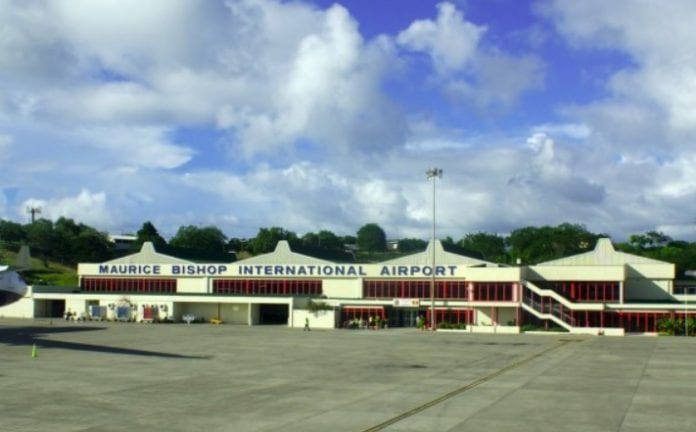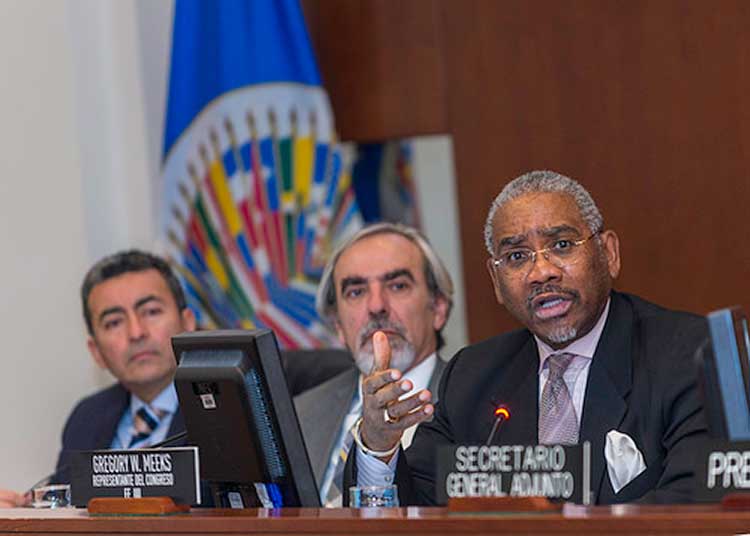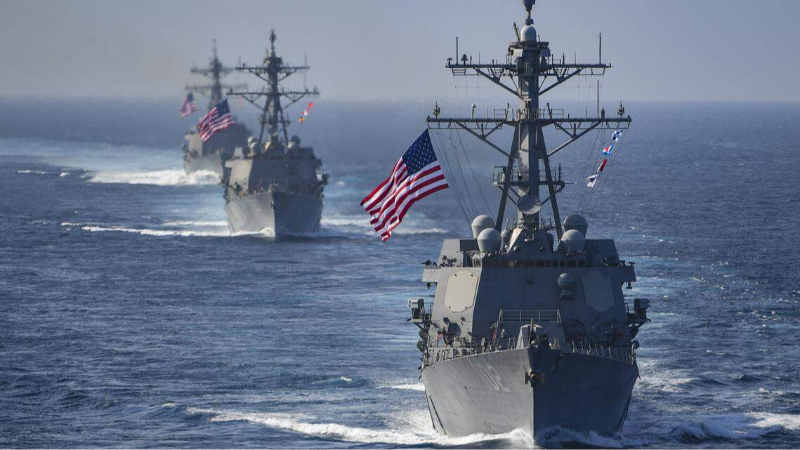GRENADA | Radar and Reckoning: Grenada Faces US Military Request Amid Caribbean Escalation

As Washington masses forces near Venezuela, a small island nation confronts a decision that could redefine regional sovereignty
GEORGETOWN, Grenada, October 10, 2025 - The request arrived like so many others from Washington—couched in diplomatic language, framed as temporary, positioned as mutually beneficial.
But when Grenada's Ministry of Foreign Affairs confirmed Thursday that the United States had asked to install radar equipment and technical personnel at Maurice Bishop International Airport, the small island nation of 125,000 people suddenly found itself at the crossroads of a rapidly escalating military confrontation just 100 miles from its shores.

Ten thousand American troops are now deployed across the region. Eight surface warships patrol Caribbean waters alongside a submarine. Special operations helicopters have been spotted off Trinidad and Tobago's coast, likely operating from the Ocean Trader, a converted cargo vessel designed to blend with commercial traffic while serving as a mothership for covert operations.
This is not routine counter-narcotics work. This is something far more significant.
The Buildup Nobody Asked For
The scale of the American military presence represents an unprecedented peacetime deployment in the Caribbean. Forces have conducted live-fire drills. At least four vessels—described by U.S. officials as drug traffickers—have been struck and destroyed in operations that congressional Democrats now openly question as potentially illegal.
The administration has invoked vague assertions of Article II presidential powers and designated certain cartels as "nonstate armed groups" and terrorist organizations, but has refused to provide Congress with the list of designated entities, the intelligence justifying the strikes, or the Department of Justice legal opinion supposedly authorizing lethal military action.
Senior Democratic lawmakers wrote to President Trump this week demanding answers. "Congress has authorized the executive to interdict, prosecute and support law enforcement-led efforts in the interdiction of drug trafficking," they noted. "At the same time, interdiction must be paired with serious efforts to reduce demand." What Congress has not authorized, they emphasized, is war.
Yet war—or something uncomfortably close to it—is what the Caribbean is witnessing. The Republican-controlled Senate this week blocked a Democratic measure that would have prohibited military strikes against suspected drug vessels, voting 51-48 to allow the operations to continue.
The message to the region is clear: Washington will operate in Caribbean waters as it sees fit, regardless of international law, congressional oversight, or regional sovereignty concerns.
 Senior Democratic members of the U.S. House of Representatives have written to President Donald Trump demanding that he provide a list of designated terrorist organizations (DTOs) and evidence supporting recent U.S. military attacks in the Caribbean Sea.Venezuela: The Real Target
Senior Democratic members of the U.S. House of Representatives have written to President Donald Trump demanding that he provide a list of designated terrorist organizations (DTOs) and evidence supporting recent U.S. military attacks in the Caribbean Sea.Venezuela: The Real Target

The radar installation Grenada is being asked to accommodate would provide the United States with enhanced surveillance capabilities directly across from Venezuela—a nation Washington has spent years attempting to destabilize. The escalation follows the collapse of what may have been a historic opportunity for diplomatic resolution.
According to the New York Times, Venezuelan President Nicolás Maduro offered the Trump administration something extraordinary: preferential access to Venezuela's vast oil, gold, and mineral wealth.
The proposal included opening all existing and future oil and gold projects to American companies, reversing the flow of oil exports from China to the United States, and slashing energy and mining contracts with companies from China, Iran, and Russia.
It was, by any measure, a sweeping concession that would have realigned Venezuela's economic orientation entirely toward Washington.
Trump refused. This week, he ended all diplomatic outreach to Caracas.
The rejection crystallizes what this military buildup is actually about. If the objective were truly counter-narcotics operations, diplomatic engagement with a major regional player offering unprecedented cooperation would be welcomed.
If the goal were addressing the "horrible public health crisis" of drug addiction that congressional Democrats referenced in their letter, then evidence-based demand reduction efforts would accompany supply interdiction.
Instead, Washington chose military escalation. The radar request to Grenada, the 10,000 troops, the warships, the strikes—these are the instruments not of drug interdiction but of coercive pressure, regime change posturing, or worse.
 Sovereignty in the Shadow of History
Sovereignty in the Shadow of History
For Grenada, the decision carries historical weight that Americans might overlook but that no Caribbean nation can forget. Forty-two years ago, in October 1983, the United States invaded Grenada, claiming to protect American medical students and restore democratic order.
The invasion came days after the completion of—ironically—the very airport now being discussed: Maurice Bishop International, built with Cuban assistance and viewed by Washington as a potential Soviet-Cuban military installation.
That Grenada must now contemplate hosting actual American military infrastructure at that same airport represents either historical irony or historical repetition, depending on one's perspective.
The Grenadian government's statement emphasized that "any decision taken will be guided by Grenada's sovereignty, public safety, and national interest, including the protection of our tourism industry, the travelling public, and the country's economic well-being." These are the careful words of a small nation navigating between great power interests and its own survival.
But what does sovereignty mean when refusing Washington's request might result in economic pressure, diplomatic isolation, or—given the current trajectory—something worse? What does "careful assessment" mean when 10,000 American troops are already operating in your region without meaningful congressional oversight or international legal justification?
The Precedent Being Set
WPG 10 Commentator Calistra Farrier, in her commentary "The Narritave", had some thoughts about the United States request and which reflects the sentiments of many Grenadians who still ask, Where is the mortal remains of former prime minister Maurice Bishop which was last in the custody of the Americans and is yet to be produced so he can have a decent burial.
Grenada's dilemma is the Caribbean's dilemma. If a temporary radar installation becomes permanent, if military "requests" become expectations, if the region becomes militarized without its consent, then the sovereignty that Caribbean nations fought for in their independence struggles becomes increasingly hollow.
The radar equipment may be temporary. The precedent will not be.
-30-
